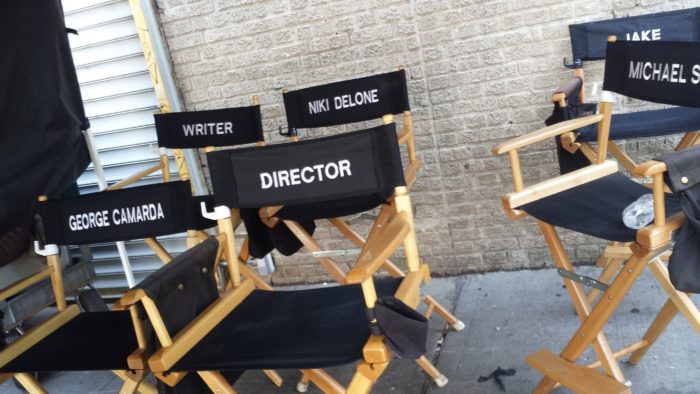
Painful First Time Director Mistakes to Avoid!
Being a Director is definitely not easy, but what is in film, right?! It’s all hard, but stepping into a Director role can be especially challenging when there are so many things expected of you when shooting starts. This goes without saying, but it’s a vital role, and there is a bunch that will weigh on you and only you. So, here are a few things to keep in mind, reconsider, and Director mistakes to avoid when it’s your first time directing.
Safety
The first thing I want and need to address is Safety. First time Directors are really, really focused on their vision and they sometimes forget about human limitations and the safety factors that go along with filmmaking. I have seen the explosive excitement on a Director’s face when they have an amazing idea. But I’ve also seen the utter heartbreak when I have to tell them as a 1st AD (1st Assistant Director) “No, we cannot do this because it’s unsafe.”
Remember your crew are not robots. They are not machines, they have limitations. We’re all human here.
The amount of shooting hours can get insane – 16, 17, 18, 19 hours in shooting! How many takes you do directly affects how long the day can be. Keep safety in mind, that includes when your crew is going home, making sure they’re not totally exhausted, and they fall asleep at the wheel and get into a car crash and ultimately lose their lives because they worked 18 hours over and over and over again throughout the week.
Always keep safety in mind and work with your 1st Assistant Director to help you figure out how you can do something more efficiently, and how you can achieve something on set for your vision safely.
Decisivness
Look, I know that you’re creative and you just wanna get lost in the art form that is filmmaking. You just wanna make your vision come to life. BUT WE HAVE THINGS TO SHOOT! We have frames to decide on. LET’S GO! Be decisive, know what you want and get things done.
I understand the creative process. And I understand how the creative juices flow. You may have envisioned something and then we try it out. It doesn’t really work. You want try something else, whatever it is, do it quickly.
One of the Director mistakes I see happen a lot is that directors find that something doesn’t work which turns into them obsessing over that one thing, and they forget about all the other things that are ahead of them. When what happens, now you have to rush through everything else that.
And when you rush through everything – All those shots just become trash. This could be where you end up spending a lot of time and money on reshoots, or you’re going to ultimately be stuck with those trash shots. All because you couldn’t decide, you got in your head, and you overthought everything.
Be decisive. And while you’re at it, have a Plan B in your back pocket for those really complicated scenes, or shots that you really want.
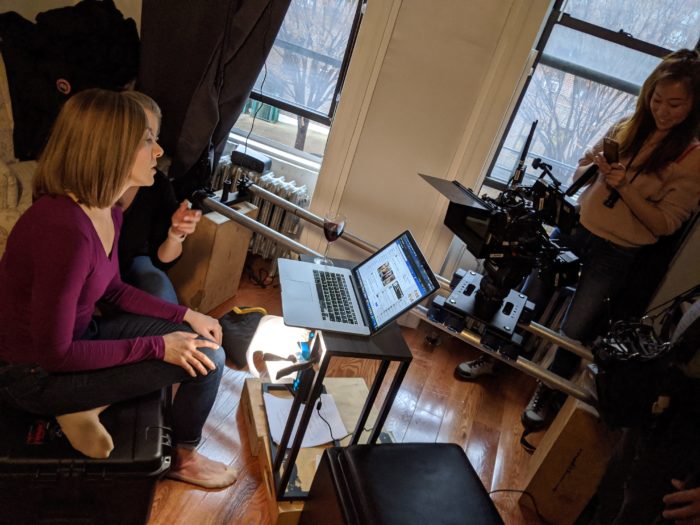
Take Care of You
This is one of the most simple to say, but hardest to execute Director Mistakes – they forget to just take care of themselves.
Folks let film take over their lives. They end up living and breathing the current project that they’re working on, Directors even more so because they’re so invested, this is THEIR vision. So much is on the line.
Many things are on your shoulders, you are definitely under pressure as a Director. You’re more likely to be affected by this than other people that are on film sets.
From the moment that a Director has woken up to the time that they go back to sleep their brain in on their project! They’re thinking about it non-stop. To the point where they forget to talk to their spouse, drink water, feed themselves, or get the appropriate amount of sleep. They are obsessing over it night and day and then right into shooting. By that time they are already super stressed, hungry, and not their best mentally. They’re not focused, they’re also very cranky and grumpy.
You have to make sure you are taking care of you, taking care of your body, and your mind to make sure that you are there for your principal photography to run as smooth as it can.
Physically, film will beat you up, and definitely mentally. You have to make sure that you are giving your mind and body what it needs to work at its best. Stay hydrated, eating healthy, stretching/exercise before or after set, or maybe even during lunch to make sure that your body doesn’t feel like it was hit by a truck when you wake up the next day.
Also, this might be very, very hard for some of you, probably most of the directors out there. You have to take your mind off of the film/project that you’re making. Honestly, that’s going be the hardest thing that you’ll ever have to do as a director, get away from it for AT LEAST a half hour. Meditate, read a book, talk to a friend about something other than your project. Make sure you’re doing something mentally stimulating that will take your mind off of what you’ve been working day and night for.
Ultimately, taking care of yourself is going to lead to you being a better Director.
Your Crew
Take care, respect, and appreciate your crew. That crew is working so hard to make sure your vision has come to life. They are obsessing, sweating, they’re grinding, their muscles are hurting. They’re busting their ass for you and your film. I’ve seen directors completely avoid all interactions with their crew, which is a huge Director Mistake!
It makes for a very, very tough situation, and it creates just this weird vibe, and no one likes to work in that weird vibe!
How are you gonna take care of your crew? Learn their names! Make the effort to learn their names, learning people’s names, go so far. Learn what position they are and what exactly that position does for you. Respect them enough to know exactly what each crew member does. Many times a Director doesn’t even know what all the crew members actually do for their daily job.
Make sure that your crew is fed and on time! Work with the Producers and the 1st AD to make sure you give the crew what they need to do their best work for you.
Be on time! Be on time for your crew. I’ve had directors show up late and it’s the ultimate disrespect because the day really can’t start without you – So be on time.
I must bring it back to safety – Don’t overwork your crew and keep it safe.
Your Cast
The relationship between the Director and the Cast is a very sensitive and unique one.
Remember your actors/cast – they’re human. And actors are usually in a more raw, or sensitive, unguarded state because that’s how they can bring out the emotions for a better performance for you as a director.
The only person that’s going to know the character better than you, the director, is going to be the actor playing that character. Don’t be offended, alarmed or upset when the actor might have a note for their performance or character. They’ll know when something might not feel right to them as they step into their role.
I’ve seen a lot of fights happen this way only because the Director did not want at least hear the actor out and let them give their opinion about what they would do differently in their performance.
Listen to your actors and communicate with them.
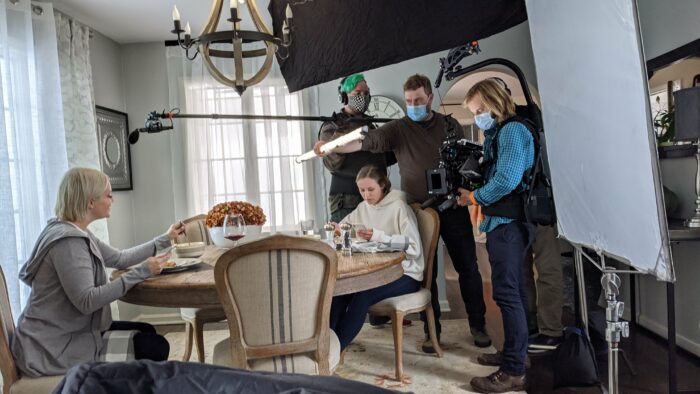
Communication.
When you are in prep, when you are on set, you are gonna be asked a bunch of questions, things you need to decide on things you want to say yes to, things you want to say no to. Assuming that your concept meetings and all these other materials like shot lists and breakdowns explain everything – that is one of the big Director mistakes. Sometimes the things on paper can’t explain everything.
You need to master the art of communication and articulation because your vision is inside your head. You have to be able to articulate – take it from your brain and put it out to your crew to make sure they know what to do to follow your vision.
If you can’t get your vision out of your head, out to your producers, your actors, your crew, then your Film or whatever project you’re working on is not going to be your vision. It’s going to be a combination of things they think your vision was supposed to be. It’s going be a combination of everyone else’s and not really yours. So you want to make sure that you can articulate and communicate what exactly you’re looking for.
If you can’t communicate it, ultimately it is not going to be a film by you. It’s going to a watered down version of what you wanted, tarnished by everyone else’s assumptions.
Asking for Help
It can be very intimidating to be directing your first short film, feature, film, music video, commercial, but what ever it is don’t be afraid to ask for help. And I think a lot of people, a lot of directors make this mistake all the time.
If it is your first time – tell people. You’re not going know absolutely everything. So don’t hide the fact that this is going be your first time directing. If you come from a place of honesty a lot more respect comes your way and your cast and crew are going to want to help you out.
Every actor and every crew member can see a first time director come a mile away. So you might as well be honest about it. Don’t be afraid to ask for help and be honest, if it is your first time directing.
Pick Your Battles
Remember when I said communicate and trust your actors and crew and ask for help. Well, there’s going to be a time on set where you’re going to have to fight for something that maybe your cast and crew just don’t get.
You have tried to map it out, explain it as best you can and for whatever reason it is not making sense to them. It might not make sense to them, but for you, it’s going to make sense when you get to the editing room.
Pick your battles wisely, and don’t be afraid to fight for something you know you need in your movie. Whatever it is, you know you need it and you’re not going to hold back.
Sometimes you are definitely have to compromise. And that just makes sense in filmmaking, compromising makes films better, but there are going be those moments where you’re going to have to step up and fight for those artistic choices, that little thing that they may not get, but it gets you closer to the vision that you are trying to achieve.
Filmmaking is all about compromise, but I tell my first time Directors all the time when I’m their 1st AD when they’re unsure and they’re ready to put something on the chopping block scene after scene to make everyone else happy – The more you do this, the further away from your vision you get.
Soon, after you get rid of all the little things you wanted, the story becomes less and less intricate, and those little things are what really make certain things we watch special.
So just keep that in mind, fight for those certain things you need to, but pick your battles wisely.
Expectations
With all this talk about your vision and fighting for your vision, one of the hardest to understand Director mistakes of first time directors is expecting that whatever is in your head is going to be exactly what is made into reality, and put on screen.
It is almost impossible for whatever you’re thinking for your film/project to come out exactly the way you planned it or exactly the way you thought it would. Be aware of that. Filmmaking is a journey – and a film at the start isn’t always what it comes out to be in the end. This isn’t go or bad either, it’s just how it works.
Just be open when it comes to your principal photography. Limitations are going to come your way. Every single day things are going to change. Locations might change, actors get sick, all kinds of things happen on set. Those limitations are going to push you creatively and can possibly change the structure of your story, your vision, of the final product.
There are going to be things that you’re not expecting, but either way, just be open to how things evolve in filmmaking when it comes to shooting. Learn how to roll with the punches. And a lot of times all these limitations, and unexpected changes make the final product come out way better than you ever expected it could!
Leadership
One of the biggest Director mistakes I’ve seen first time Directors make is just not fully embracing and stepping into the leadership role. The Director is the captain of the ship. You need to know how to lead. Everyone is looking to you. You’re going to have the answers to everything. You are the one that says “yes” or “no” to literally everything.
Take that leadership role seriously, take it on and just know the responsibility that you have with it. Being a Director is being a leader.
Be confident, be decisive, communicate clearly, empower your crew and your cast. Empowering is such a great element of good leaders. And if you know those things might not be your strong suit partner with a 1st AD, that compliments you. They’ll have those abilities and those skills that make up for your weaknesses, but also you’ll be able to learn from their strengths as well just by working with them so closely.
So it’s ok if you’re not the best leader, partner with folks that make you better, and help you grow.
I know it might take a few projects as a Director to work on your confidence, and to fill that leadership role, but as long as you’re working on it, you are okay in my book. Study leadership, you will not regret it. I love John Maxwell and everything he has to say on leadership def recommend this book.
Those are my top Director Mistakes to avoid – there’s a lot of things here to think about. The main take away is to know you’re not going to be perfect. But there’s always room to improve, and I hope these things listed help to prevent any painful situations on set. I mean Filmmaking is hard enough as it is!
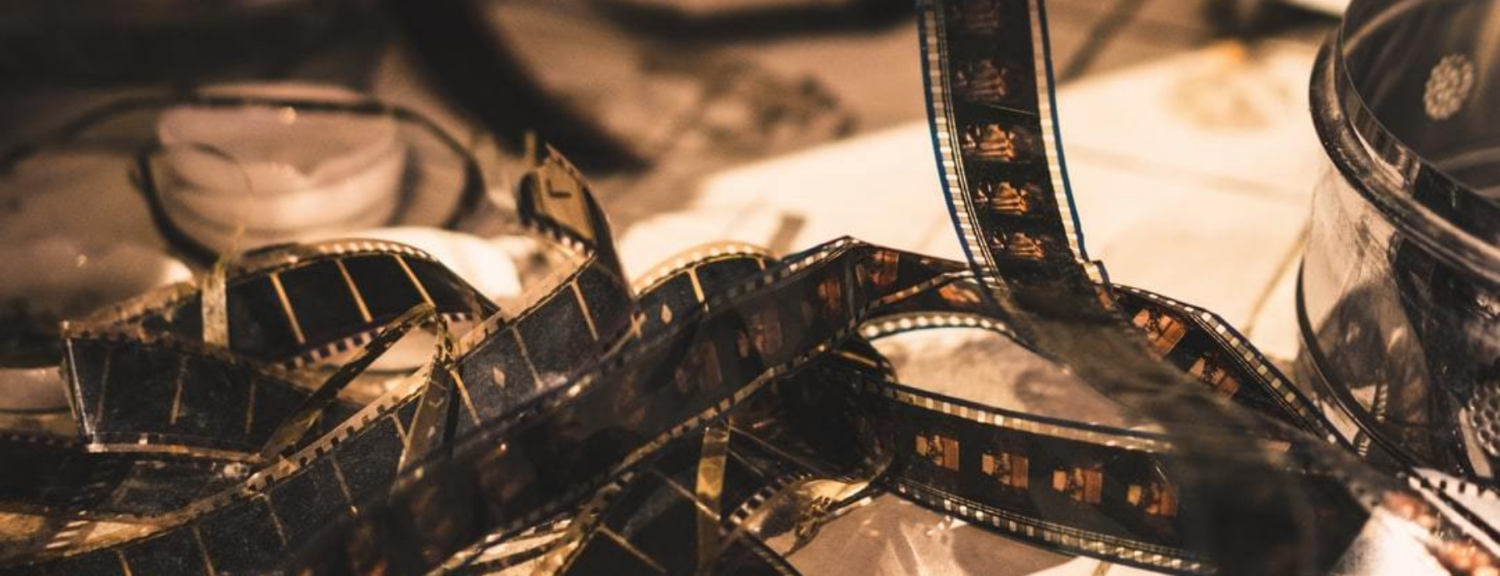


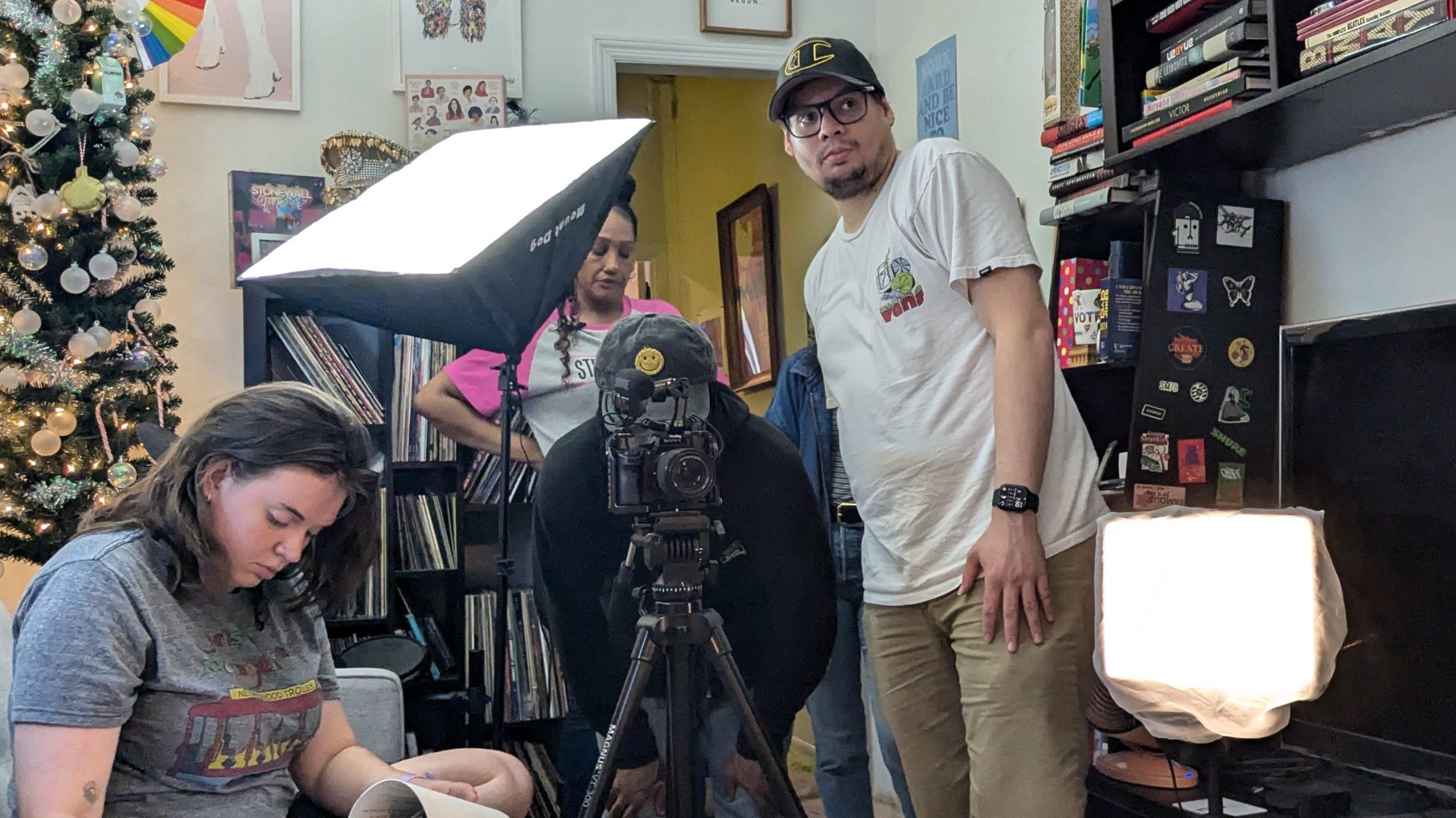
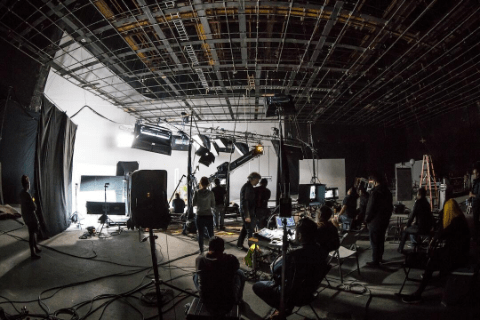
Comments are closed.